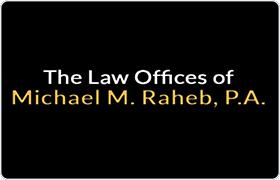 Felda Criminal Lawyers, Florida
Felda Criminal Lawyers, Florida
Sponsored Law Firm
-
 x
x

Click For More Info:
-
Law Offices of Michael M. Raheb P.A.
2423 First St Fort Myers, FL 33901» view mapCriminal Defense Law Legal Problem? Call Us 24/7
At the Law Office of Michael M. Raheb, we strive to ensure each of our clients receives the individual attention and representation necessary to obtain an optimal outcome.
800-890-8981
Lawyers
1-1 of 1 matches




 Michael M. Raheb Fort Myers, FL
Michael M. Raheb Fort Myers, FL Practice AreasExpertise
Practice AreasExpertise